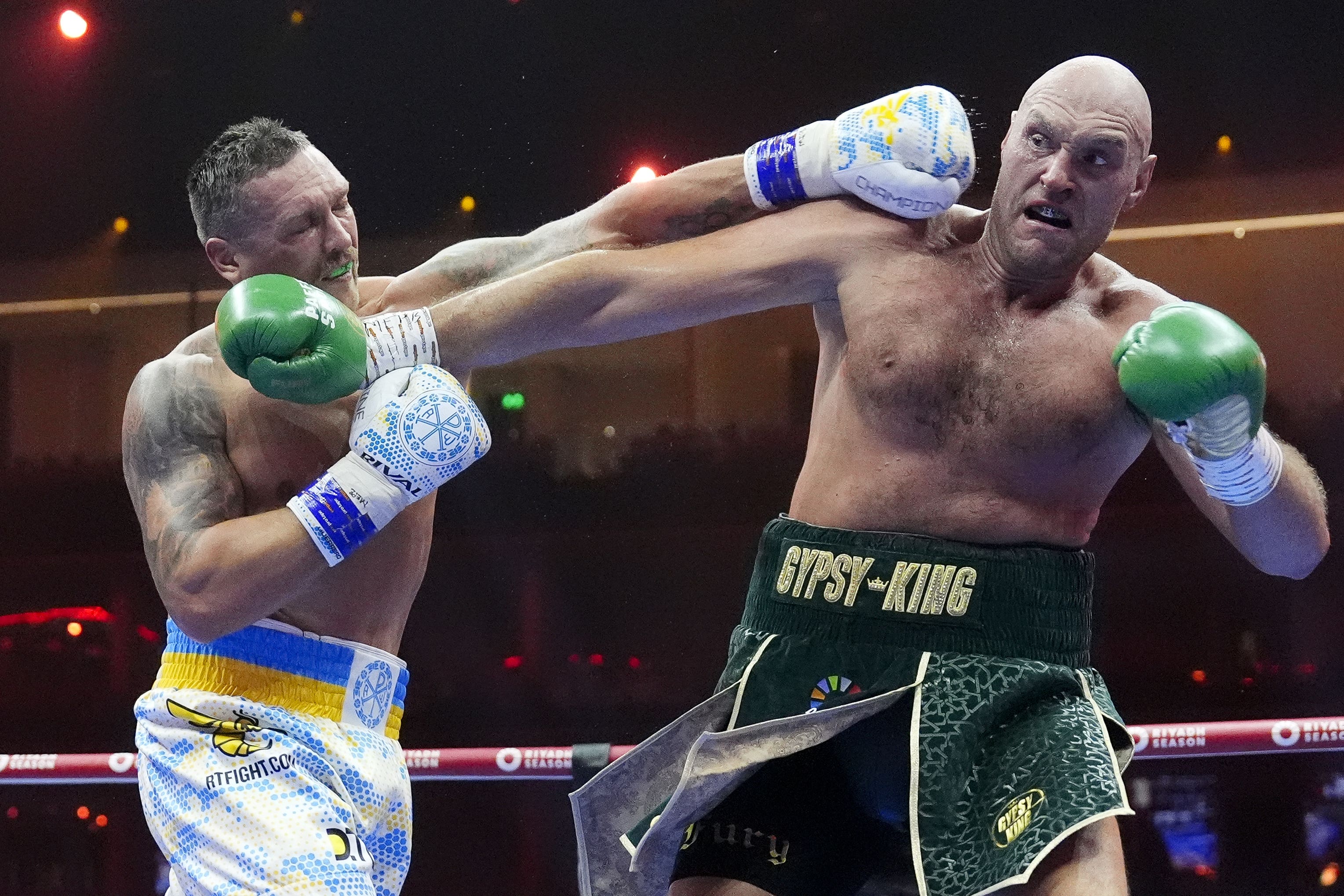For years, the most irksome issue in boxing was the sport’s inability to produce the biggest fights. In the majority of cases, the fighters were not to blame: managers, promoters and governing bodies all played their roles. Each had their motivations. Managers and promoters had an obligation to secure their boxers (and themselves) the best financial deals at the lowest in-ring risk, while governing bodies often pushed for mandatory title defences at the expense of the match-ups that fans truly wanted to see. But broadcasters also played their part in forging the complex, rugged landscape of boxing.
Boxers signed to a promoter are, by proxy, signed to the promoter’s broadcaster, meaning said promoters feel the pressure to deliver for their clients. Keeping prospective rivals at a distance enables broadcasters to maintain exclusivity: their stars are theirs alone, and always the A-side. At least, that was the trend until 2023.
This is not to suggest that these issues have been completely eradicated, but Saudi Arabia’s entry into boxing has been transformative. Accompanied by concerns over sportswashing, the Saudis’ venture has seen inconceivable amounts of money poured into boxing, facilitating the kind of match-ups that eluded fans for so long. Standout fights have been Tyson Fury vs Oleksandr Usyk for the undisputed heavyweight title – the first fight of that nature in 25 years – and the impending rematch, as well as Saturday’s main event between Artur Beterbiev and Dmitry Bivol: an enthralling pairing for the undisputed light-heavyweight belts.
As well as forcing this much-improved matchmaking, Saudi Arabia’s boxing revolution has impacted broadcast deals, too; the sands have shifted favourably for viewers.
While it initially appeared that DAZN might be the exclusive broadcast partner for Saudi events, and while DAZN signed a multi-year deal with Riyadh Season this week, most of the major pay-per-views (PPVs) over the last year have also aired on Sky Sports and TNT Sports in the UK – as well as ESPN+ in the US.

So, not only have the most-desired matches materialised, but they have also become more accessible to fans, who needn’t own every subscription under the sun to watch these events, or to fumble with the remote on a platform with which they’re less familiar. If DAZN is your go-to, you can stick with DAZN, and so on.
Prices have been reasonable so far, too – in the UK at least. Fury vs Usyk 1, in May, was set at £23.99 for DAZN subscribers, £24.95 for Sky customers, and £24.99 for TNT viewers. But as alluded to there, viewers still need a subscription in most cases, which has long been a qualm about the PPV model. In a twist on that system, DAZN emerged on the boxing scene in 2018 and suggested it would be subscription-only, but it eventually moved to a traditional PPV set-up.
And what of US prices? They have long dwarfed UK costs, with Fury vs Usyk 1 priced at $69.99 on ESPN+ and DAZN in the States. That has encouraged Turki Al-Sheikh, the leader of the Saudi boxing venture, to push for lower costs in North America.

Talksport reported that 20m viewers illegally streamed Fury vs Usyk 1, costing TV rights holders approximately £95m in lost revenue. Of those viewers, 18 per cent allegedly watched illegally from the UK, while 25 per cent did so in North America.
“You mention the PPV, I think this is my next big fight, and I want your advice also,” Al-Sheikh told Talksport in early September. “I dream of a PPV with a good price to make the fans happy and subscribe and get them to watch it legally. Usually when I see a high PPV, a lot of people go and watch the fight illegally, and this is not healthy for boxing and the platform.
“What I will try to push is to have our Riyadh Season shows at less than £20 in England and less than $20 around the world… I would prefer to have 1m fans subscribe and buy the PPV for £20, [rather] than less than 500,000 [doing so for £40]. The people go around it illegally because the price is high. In the future, this will not build boxing. If I give the fans good fights at a good price, then I will increase the fanbase.”

A few weeks later, Anthony Joshua’s stunning loss to Daniel Dubois cost £19.99 in the UK and $19.99 in the US. Beterbiev vs Bivol will cost the same on DAZN across the two countries, although there is a confusing quirk on ESPN+: subscribers will get the main event at no extra PPV cost, but the undercard is priced at $14.99.
As expected, then, Al-Sheikh’s efforts to create cheaper PPVs will not be wholly straightforward. But overall, since he made his intentions known, the progress has been impressive, happening at a speed that one can only associate with Saudi endeavours.
Saudi money tends to smoothen paths towards most goals, and it is having the same effect on the once-convoluted terrain of televised boxing. Yet this is not to suggest that fans and viewers should walk this refurbished path in ignorant bliss; as Saudi Arabia continues to use boxing as a vehicle for improving its reputation, amid longstanding criticism of its human-rights record, cheaper PPV prices may come at a different kind of cost.

